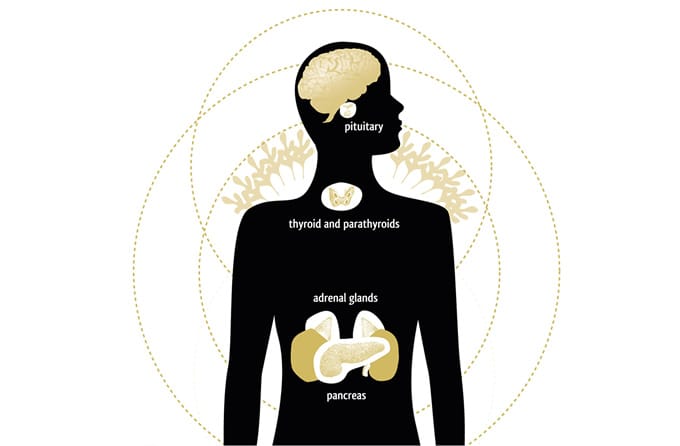What is MEN?
MEN (Multiple Endocrine Neoplasia) are a group of inherited disorders that cause tumor growth in the endocrine glands as well as other health issues. There are three distinct types of MEN – MEN1, MEN2 and MEN3. Multiple Endocrine Neoplasia syndromes are inherited disorders, which means that they can be passed down in families, with each child of an affected parent having a 1 in 2 or 50% risk of inheritance.
MEN2 was formerly called MEN2a and MEN3 was formerly called MEN2b, and indeed there are similarities between the two.
-
 MEN Causes Tumor Development in Endocrine Glands
MEN Causes Tumor Development in Endocrine Glands
What are the symptoms of MEN?
MEN syndromes cause more than one gland of the body’s endocrine (gland) system to develop tumors. The affected glands then produce abnormally increased amounts of hormones, the body’s chemical messengers, which in turn cause a variety of different symptoms.
Each tumor may occur alone or independently of MEN and are here referred to as associated endocrine tumors.
A person may have a gene change that causes MEN but not yet have developed any of the tumors and they are then known as a “MEN carrier” and should be offered regular tests and follow-up appointments at an endocrine clinic in the same way as a patient who already has MEN tumors.
In many people (although not all) the gene change may be identified by genetic testing, but this should be done after specialist genetic counseling. Genetic testing and counseling services are available on referral from your doctor or specialist.
More information on MEN1
More information on MEN2 (MEN2A)
More information on MEN3 (MEN2B)
References and information production